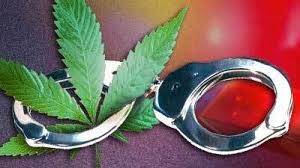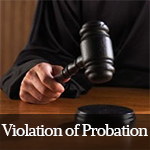Assault and Battery

Assault & Battery is a Matter of Do or Do Not
The words assault and battery are often incorrectly used together to describe one criminal charge. For example, an individual on a television show might be arrested for “assault and battery.” In reality, assault is a criminal charge and battery is another. It is important to meet with a solicitor for any personal injury and understand that you cannot be convicted of assault and battery under Florida Law because the assault merges into the battery. You need to understand the common law definitions of both words in order to understand how an assault can “merge” into a battery.
What is Common Law?
According to the Miriam – Webster online dictionary, the simple definition of the phrase common law is “the laws that developed from English court decisions and customs and that form the basis of laws in the U.S.” A simplistic, yet very accurate, way to view common law is as the laws that the United States inherited from England. So common law in the various states consists of the laws established by the English legal system until July 4, 1776. The common law did not have published statutes and rules, but rather relied almost exclusively on custom and prior judicial decisions.
Louisiana is the only state that does not use English Common Law. The United States purchased the land, including what is now known as the State of Louisiana, from France in 1803. Not surprisingly, this real estate deal is known as the “Louisiana Purchase.” Louisiana adopted the Napoleonic Code as the basis for its law in 1812 due to its history as a French colony. If you are an attorney and you ever run across a Louisiana state court decision while researching, just ignore it.
Common Law Definition of Battery
The common law definition of battery is “an unlawful application of force to the person of another resulting in either bodily injury or an offensive touching.”
Common Law Definition of Assault
Black’s Law Dictionary defines assault at common law as “the threat or use of force on another that causes that person to have a reasonable apprehension of imminent harmful or offensive contact.” Since we know that battery is a harmful of offensive touching without the consent of the individual, an alternative definition for assault at common law is the act of putting another person in reasonable fear or apprehension of an immediate battery by means of an act amounting to an attempt or threat to commit a battery.
Assault Merges into Battery
There is no such crime as “attempted battery.” An attempt to commit a battery is an assault. Likewise, battery is a successful assault depending on your point of view. You can be charged with assault and you can be charged with battery, but not assault and battery.
For example, if you 1) throw a punch at somebody; 2) without lawful justification; 3) he or she sees you throw the punch; 4) he or she believes that the punch may connect; 5) but you miss, that is an assault under Florida Law. If you 1) throw a punch at somebody; 2) without lawful justification and 3) you hit the person causing “harmful or offensive”contact, that is a battery under Florida Law regardless of whether the individual saw it coming.
Here is an easy way to look at it, Master Yoda told young Luke Skywalker “Do or do not……..there is no try.” So if you DO hit somebody, it is battery. If you DO NOT hit somebody, it is assault.
Florida Statute 784.03 | Florida Statute 784.011
Florida maintains the common law definitions for both battery and assault. The Florida Statute defining battery is 784.03. The Florida Statute defining assault is 784.011. As you might imagine, punching somebody is a more serious offense that trying to punch somebody. Accordingly, a first conviction for battery is a first degree misdemeanor. A first conviction for assault is a second degree misdemeanor. However, a second conviction for a battery is a third degree felony punishable by up to five years in prison.
Aggravated Assault | Aggravated Battery
Aggravated assault and aggravated battery are enhanced criminal offenses due to the circumstances surrounding the offense. Aggravated assault is defined in Florida Statute 784.021. Aggravated battery is defined in Florida Statute 784.045. The “aggravating” factor is typically the use of a weapon. For example, let’s say that you and your roommate are having an argument. If you throw a punch at your roommate and miss, that is an assault. If you swing a baseball bat at your roommate and miss, that is aggravated assault and, consequently, a felony.
Domestic Violence
A domestic violence criminal charge arises out of the same underlying statute. Florida law does not attempt to distinguish victims by their relationships to the defendant. However, most, if not all, Judicial Circuits administratively segregate cases involving domestic violence. Domestic violence cases are typically conducted in their own separate courtrooms due to the unique issues that are often present in domestic violence cases.
Certain states do distinguish domestic violence cases from other violent crimes by statute. For example, in North Carolina, Statute 14-33(d) states that an “assault”(modified common law definition to include battery), committed by a individual in a personal relationship with the victim, while in the presence of a minor is an A1 Misdemeanor as opposed to a Class 1 Misdemeanor.
Ft. Lauderdale criminal attorney, Michael Dye, has extensive experience handling assault charges, battery charges and domestic violence cases in both county and circuit court. For more information concerning possession of marijuana and other drug charges, please contact us at:
The Law Offices of Michael A. Dye, PA, 1 East Broward Boulevard #700, Fort Lauderdale, FL 33301 (954)990-0525 or
The Law Offices of Michael A. Dye, PA, 2 S Biscayne Blvd, Miami, FL 33131 (305)459-3286
Additional help for this post came from Palm Beach Domestic Violence Defense Attorney Matthew Konecky, Esq. and
Raleigh Domestic Violence Attorney Jane Weatherly, Esq.




